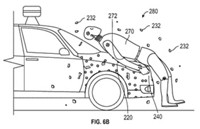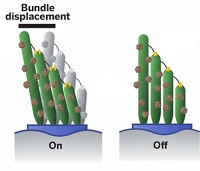Advertisement
Grab your lab coat. Let's get started
Welcome!
Welcome!
Create an account below to get 6 C&EN articles per month, receive newsletters and more - all free.
It seems this is your first time logging in online. Please enter the following information to continue.
As an ACS member you automatically get access to this site. All we need is few more details to create your reading experience.
Not you? Sign in with a different account.
Not you? Sign in with a different account.
ERROR 1
ERROR 1
ERROR 2
ERROR 2
ERROR 2
ERROR 2
ERROR 2
Password and Confirm password must match.
If you have an ACS member number, please enter it here so we can link this account to your membership. (optional)
ERROR 2
ACS values your privacy. By submitting your information, you are gaining access to C&EN and subscribing to our weekly newsletter. We use the information you provide to make your reading experience better, and we will never sell your data to third party members.
Education
Newscripts
Steamed Up Over Taxes, Pill Science
by Stephen K. Ritter
May 10, 2010
| A version of this story appeared in
Volume 88, Issue 19
Steam is just water. Right? And water is the most abundant chemical on Earth. Right? So when is steam not a chemical? When the Bombay High Court says so.
Newscripts reader Uday Maitra, a professor and chairman of the department of organic chemistry at the Indian Institute of Science, in Bangalore, wrote to point out that the Times of India reported on April 17 that the court was asked to rule on THE NATURE OF STEAM. It turns out that the court wasn't trying to rework the laws of nature but was instead trying to clarify a tax law.
The court was hearing a case filed by Gopalanand Rasayan, a company that manufactures sulfuric acid. It's not clear which sulfuric acid process the company uses, but water to cool the exothermic reaction is turned into tons of high-pressure steam, which the company sells as a by-product, most likely to a neighboring facility.
Under the tax law, steam designated as a chemical garners a 4% sales tax. But if steam is not a chemical, it fetches a 10% sales tax. Apparently, tax authorities were trying to pinch the company by directing it to pay the 10% sales tax on steam it generated from 1988 to 1991, which would be a few hundred thousand dollars. The court system itself seems a bit taxed because it took 20 years to adjudicate the case.
At any rate, the judges ruled: "The common man always treats steam as part and parcel of water. It is a fact that in taxing statute the words which are not of technical expressions or words of art but are words of everyday use, must be understood and given a meaning, not in their scientific sense, but in a sense as understood in common parlance." In other words, the company has to pay the 10% tax.
A team of drug delivery specialists led by Bryan Laulicht and Edith Mathiowitz of Brown University has developed a pretty cool high-resolution tracking technique to calculate the GASTRIC FORCES EXPERIENCED BY PILLS as they wend their way through the digestive system. The study is part of the interesting world of pill science.

The researchers gave a magnetic pill—think something that looks like a small stir bar—to fasting and fed rats, dogs, and humans (Proc. Natl. Acad. Sci. USA, DOI: 10.1073/pnas.1002292107). Laulicht tells Newscripts that an array of magnetic-field sensors placed over the abdomen allows the team to monitor the trajectory of the pill and the crushing forces acting on it in three translational and two rotational directions in the stomach and small intestine. Previous methods of analyzing gastric forces include placing a balloon catheter in the stomach and measuring the pressure on it. The magnetic pill seems a little easier on the stomach.
Laulicht says that on a full stomach the dogs and human volunteers exert similar gastric emptying forces and torques on the pill, whereas the average force exerted by fasting dogs is roughly five times that exerted by fasting humans. The findings suggest that dogs are suitable animal models for studying human gastric retention of pills taken after eating.
Why is that important? Prolonging the gastric residence time of certain pills has been shown to improve their therapeutic benefit, Laulicht notes. So knowing the gastric forces exerted on disintegrating pills could help in designing the composition and shape of pills to make them more efficient.






Join the conversation
Contact the reporter
Submit a Letter to the Editor for publication
Engage with us on Twitter